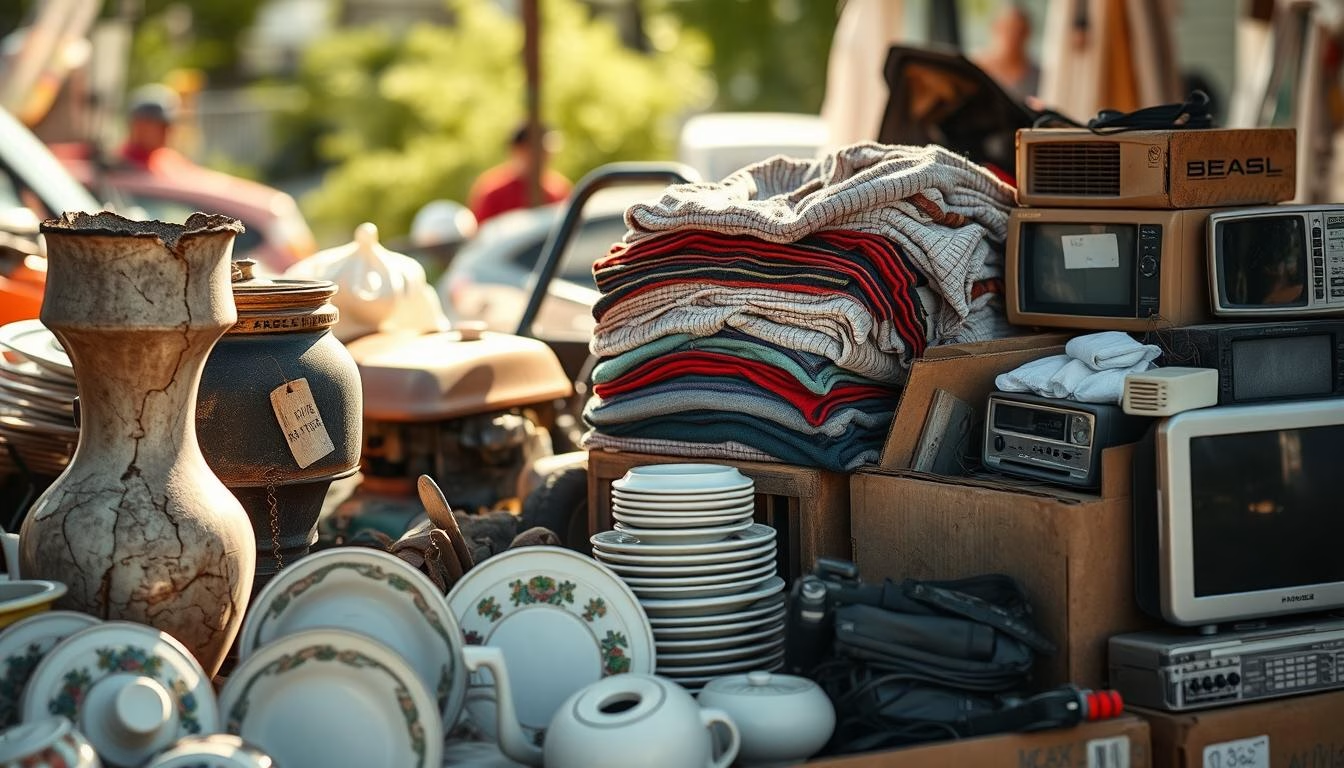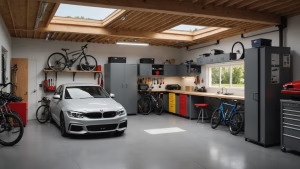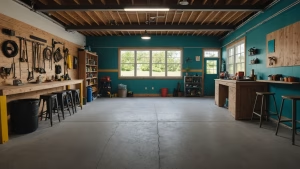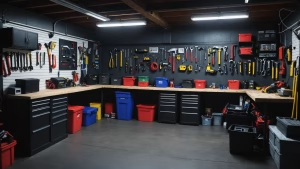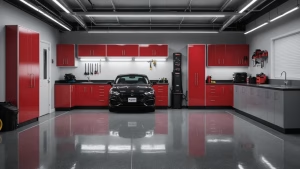Hosting a garage sale can be a great way to declutter your home and earn some extra cash. However, it’s crucial to know which items to keep off the table.
Certain items are best avoided when it comes to garage sales. These include personal items that may compromise your privacy, expired or damaged products that could pose health risks, electronics that are outdated or non-functional, and hazardous materials that require special disposal.
Understanding what to exclude from your garage sale not only helps in maintaining a safe and respectful environment for your customers but also protects you from potential legal issues. By being mindful of the items you choose to sell, you can ensure a successful and stress-free garage sale experience.
1. Personal Items That Hold Sentimental Value
As you prepare for your garage sale, it’s crucial to distinguish between items that can be sold and those that are too personal to let go of. Personal items that hold sentimental value, such as family heirlooms, photographs, and personal letters, are often irreplaceable and emotionally significant.
These items are not only valuable for their monetary worth but also for the memories and emotions they evoke. Selling them at a garage sale might not be the best decision, as they could be lost forever, and their sentimental value cannot be measured.
Instead of selling, consider alternative ways to deal with these personal items. You could keep them in the family by passing them down to younger generations or donate them to a charity or museum if they hold historical significance.
Some items, like used underwear and taxidermy animals, are generally considered inappropriate for garage sales due to hygiene concerns or their unusual nature. Similarly, items like stuffed animals, which may harbor allergens or be in poor condition, are best kept or disposed of rather than sold.
By carefully considering what to keep and what to let go of, you can ensure that your garage sale is both successful and respectful of your personal belongings.
2. Expired or Damaged Products
Expired or damaged products have no place at a garage sale, as they can pose health risks to buyers and harm your reputation. Selling such items can lead to legal and ethical issues, making it crucial to inspect your goods carefully before listing them for sale.
Items like cosmetics, perfumes, and medicines that are past their expiration dates should be discarded rather than sold. Using expired cosmetics can lead to skin irritations or infections, while expired medicines can be ineffective or even harmful. Similarly, damaged or broken items, such as toys with sharp edges or electrical appliances with frayed cords, can cause injuries.
To avoid these risks, it’s essential to check the expiration dates of all products and inspect items for any damage. If you’re unsure about the safety or usability of an item, it’s best to err on the side of caution and dispose of it. This not only protects potential buyers but also safeguards your reputation as a seller.
When in doubt, consider the potential consequences of selling an expired or damaged product. Ask yourself if the item could cause harm or if it’s in a condition that could lead to customer dissatisfaction. By being diligent and responsible, you can ensure a successful and safe garage sale experience for both you and your customers.
By carefully curating your garage sale items and excluding expired or damaged products, you contribute to a safer community and maintain a positive image as a seller. This practice also encourages a culture of responsibility among buyers, who are more likely to appreciate the value of well-maintained and safe products.
3. Electronics and Technology
Selling electronics and technology at garage sales can be tricky due to the rapid pace of technological advancements. Outdated electronics, such as old smartphones, laptops, or televisions, may not be functional or desirable to potential buyers.
One of the main issues with selling electronics at garage sales is the risk of selling items that are no longer compatible with current technology. For instance, older models of smartphones may not be supported by current networks, making them less desirable.

Source1 cautions against buying electronics at garage sales unless they can be tested. This advice is particularly relevant for electronics, as their condition can be difficult to assess without proper testing.
Alternatives to Selling Old Electronics
Instead of selling outdated electronics at garage sales, consider recycling or donating them. Many organizations accept old electronics for recycling, helping to minimize electronic waste.
Donating old electronics can also be a viable option, especially if the items are still in working condition. Some charities accept used electronics and either refurbish them for those in need or responsibly recycle them.
By choosing to recycle or donate old electronics, you not only avoid potential issues associated with selling outdated technology but also contribute to reducing electronic waste and supporting those in need.
4. Clothing with Significant Wear and Tear
When decluttering your closet, it’s essential to consider the condition of your clothing before deciding to sell it at a garage sale. Clothing with significant wear and tear can be a turn-off for potential buyers, making it challenging to sell.
Items like stained, torn, or smelly clothing are generally not suitable for a garage sale. According to Source2, stained leather coats and smelly items should be avoided. Source3 advises against buying clothing with significant wear and tear, indicating that such items are not desirable for resale.
Before selling, it’s crucial to assess the condition of your clothing honestly. Consider whether the item is still in wearable condition or if it’s beyond repair. Clothing that is heavily worn, faded, or damaged is likely to deter buyers.
To make your clothing more attractive to buyers, consider cleaning and ironing items before the sale. For items that are still in good condition but have minor flaws, consider pricing them competitively or bundling them with other similar items.
Ultimately, being mindful of the condition of your clothing and being selective about what you sell can help you have a successful garage sale. By avoiding items with significant wear and tear, you can attract more buyers and increase your chances of selling your unwanted clothing.
5. Hazardous Materials
It’s essential to identify and exclude hazardous materials from your garage sale to ensure a safe and successful event. Hazardous materials can pose significant risks to health and the environment, and selling them can lead to serious consequences.
Common hazardous items to watch out for include chemicals, batteries, and certain types of cookware. These items can contain toxic substances that are harmful if not disposed of properly. For instance, old batteries can leak acid, and certain cookware may contain lead or other hazardous materials.
Instead of selling hazardous materials, it’s recommended to dispose of them through appropriate channels. Many communities have designated facilities for handling hazardous waste, such as household hazardous waste collection events. You can also check with local waste management services for guidance on safe disposal practices.
By avoiding the sale of hazardous materials, you not only protect your customers but also contribute to a safer environment. It’s a responsible step that aligns with the spirit of garage sales, which is to declutter and reuse items in a way that benefits the community.
Safe Disposal Options
For safe disposal, consider the following options:
– Check with local authorities for household hazardous waste collection events.
– Participate in community recycling programs that accept hazardous materials.
– Contact local waste management services for advice on disposing of specific hazardous items.
6. Items Requiring Repair or Maintenance
One of the key decisions when preparing for a garage sale is what to do with items that need fixing. While it might be tempting to try to sell these items as-is, buyers often view them as projects rather than purchases, which can deter them from making a sale.
Items that require repair or maintenance, such as old appliances or furniture with broken parts, can be challenging to sell because they demand additional time and money from the buyer. Source 3 advises against selling such items, suggesting that they are not ideal for garage sales.
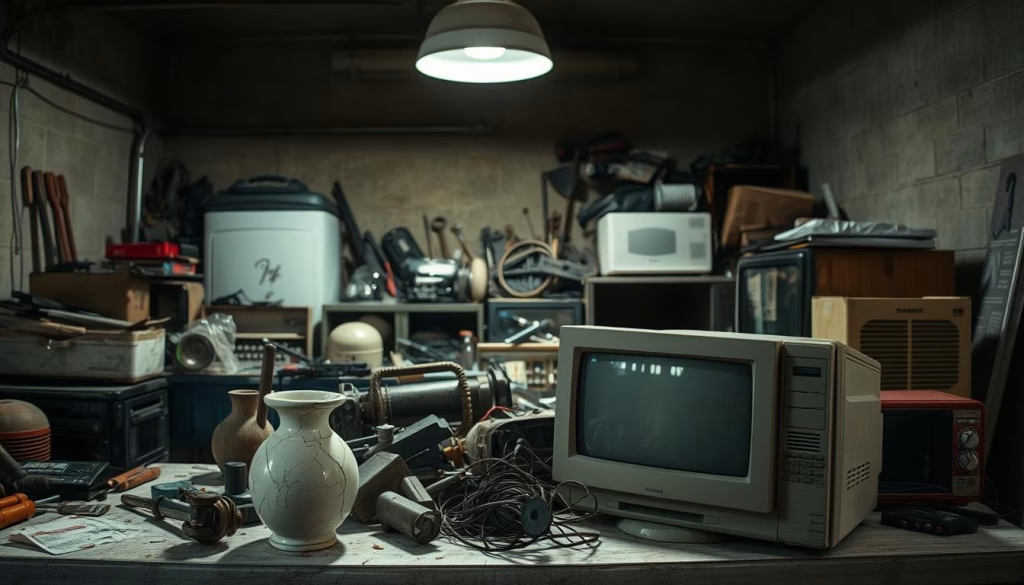
So, what are the alternatives? One option is to fix the items before selling them. This can make the items more attractive to buyers and potentially increase their sale price. However, this requires an investment of time and possibly money in repairs.
Another option is to donate items that need repair to charity. While you might not make money from these items, donating them can provide a tax deduction and the satisfaction of helping others. It’s also worth considering the environmental impact of disposing of large items and the potential cost savings of not having to dispose of them yourself.
When deciding what to do with items that require repair or maintenance, it’s essential to weigh the potential sale price against the cost and effort of repairs. If the item is valuable enough and the repairs are feasible, fixing it before the sale might be the best choice. Otherwise, donating or responsibly disposing of it might be the more practical and ethical decision.
7. Large Furniture and Household Appliances
Large furniture and household appliances can be challenging to sell at garage sales due to their size and potential safety concerns. Many buyers are wary of purchasing bulky items at garage sales because of the difficulty in transporting them and potential hidden damages.
One of the main issues with selling large furniture and household appliances at garage sales is space. Both sellers and potential buyers often face logistical challenges. Sellers need to have enough space to display these items, and buyers need to consider how they will transport such bulky purchases home.
Given these challenges, it’s often more effective to sell large furniture and household appliances through other channels. Online marketplaces, such as Craigslist or Facebook Marketplace, can be ideal platforms because they allow buyers to search specifically for these types of items and arrange for pickup or delivery.
Specialty stores or second-hand furniture dealers might also be interested in purchasing or consigning large furniture and appliances. These businesses often have the necessary expertise to refurbish or resell these items, making them a more suitable outlet than a garage sale.
In conclusion, while garage sales are a great way to declutter and earn some extra cash, large furniture and household appliances are among the items not suitable for a garage sale. Considering alternative sales channels can lead to a more successful and hassle-free selling experience.
8. Expensive Antiques and Collectibles
Expensive antiques and collectibles demand a more sophisticated sales approach than a typical garage sale. These high-value items require a level of expertise and exposure that garage sales cannot provide.
One of the main reasons to avoid selling expensive antiques and collectibles at garage sales is the lack of professional appraisal. Without a proper assessment, it’s easy to undervalue or misrepresent the item, potentially leading to financial loss or a failed sale. Source3 advises against buying fake or misrepresented antiques and collectibles, highlighting the importance of authenticity and accurate valuation.
For sellers looking to dispose of valuable antiques and collectibles, alternatives such as auction houses or specialty dealers are more appropriate. These platforms offer the necessary expertise and audience to ensure that items are sold at their true value. Auction houses, in particular, provide a competitive bidding environment that can drive up the sale price of rare or highly sought-after items.
Benefits of Professional Appraisal
A professional appraisal not only provides an accurate valuation of the item but also offers documentation that can be crucial for potential buyers. This process helps in building trust and can significantly enhance the saleability of the item.
Furthermore, specialty dealers often have a network of collectors and enthusiasts looking for specific items. By consigning your antiques or collectibles to these dealers, you can reach a targeted audience that is willing to pay a premium for what they are looking for.
In conclusion, when dealing with expensive antiques and collectibles, it’s best to steer clear of garage sales. Instead, opt for channels that offer the right mix of expertise, exposure, and targeted marketing to achieve the best possible sale price.
9. Items in Poor Condition
When preparing for a garage sale, it’s essential to consider the condition of the items you’re selling. Items in poor condition, such as those that are moldy, smelly, or broken beyond repair, are best not sold at a garage sale.
According to experts, selling items in poor condition can deter potential buyers and harm your reputation as a seller. Instead of selling these items, consider donating or disposing of them responsibly. This approach not only helps declutter your home but also contributes to a more pleasant and trustworthy garage sale experience for your customers.
Before deciding what not to sell at a garage sale, take the time to inspect your items carefully. If you’re unsure about the condition of an item or its potential appeal to buyers, it’s better to err on the side of caution. By doing so, you’ll be able to create a more attractive and inviting garage sale that showcases your gently used items, making it a successful event for both you and your customers.
Knowing what things not to sell at a yard sale can make a significant difference in the overall success of your sale. By excluding items in poor condition, you’ll be able to attract more buyers and create a positive experience.

